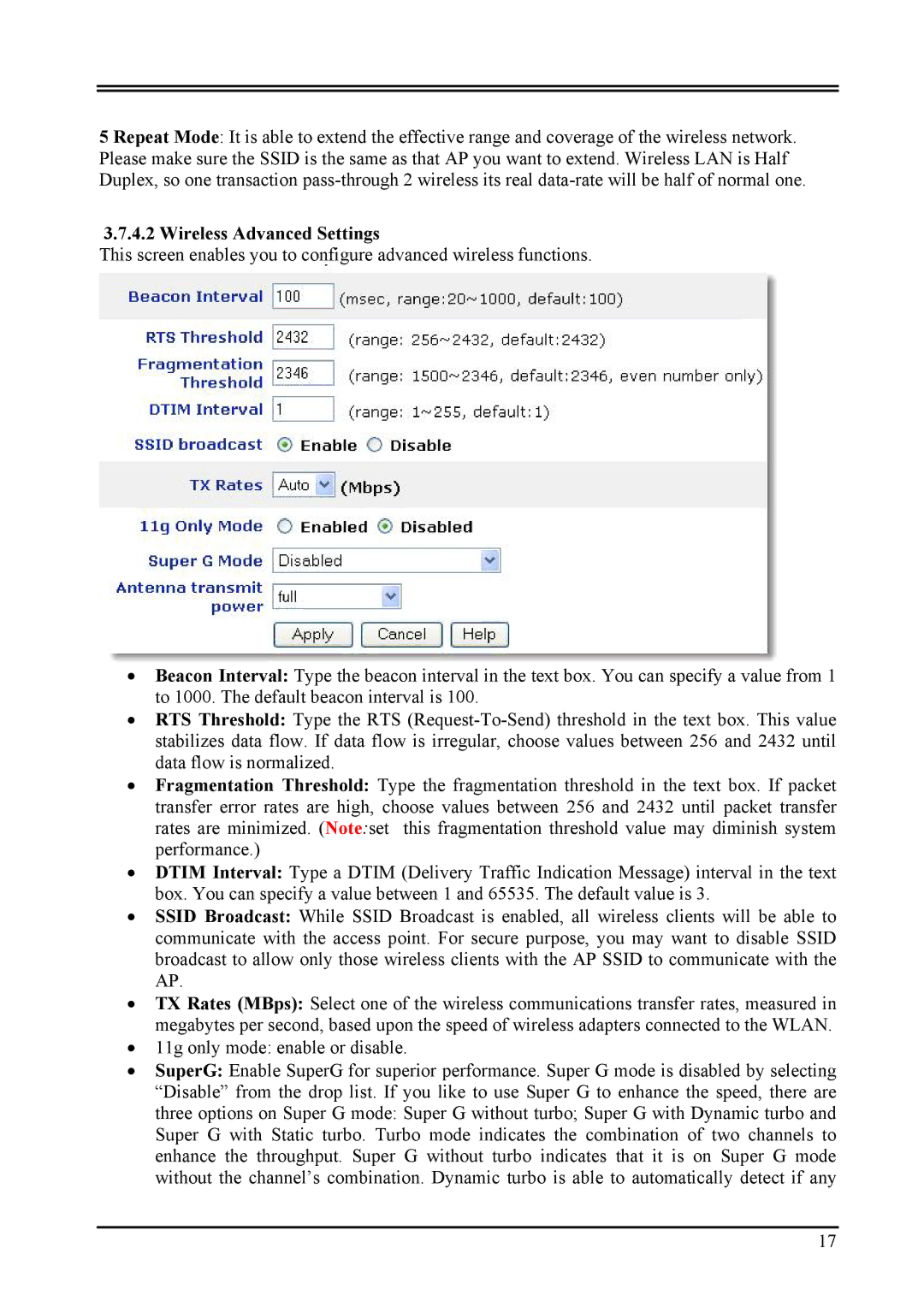
5 Repeat Mode: It is able to extend the effective range and coverage of the wireless network. Please make sure the SSID is the same as that AP you want to extend. Wireless LAN is Half Duplex, so one transaction
3.7.4.2 Wireless Advanced Settings
This screen enables you to configure advanced wireless functions.
•Beacon Interval: Type the beacon interval in the text box. You can specify a value from 1 to 1000. The default beacon interval is 100.
•RTS Threshold: Type the RTS
•Fragmentation Threshold: Type the fragmentation threshold in the text box. If packet transfer error rates are high, choose values between 256 and 2432 until packet transfer rates are minimized. (Note:set this fragmentation threshold value may diminish system performance.)
•DTIM Interval: Type a DTIM (Delivery Traffic Indication Message) interval in the text box. You can specify a value between 1 and 65535. The default value is 3.
•SSID Broadcast: While SSID Broadcast is enabled, all wireless clients will be able to communicate with the access point. For secure purpose, you may want to disable SSID broadcast to allow only those wireless clients with the AP SSID to communicate with the AP.
•TX Rates (MBps): Select one of the wireless communications transfer rates, measured in megabytes per second, based upon the speed of wireless adapters connected to the WLAN.
•11g only mode: enable or disable.
•SuperG: Enable SuperG for superior performance. Super G mode is disabled by selecting “Disable” from the drop list. If you like to use Super G to enhance the speed, there are three options on Super G mode: Super G without turbo; Super G with Dynamic turbo and Super G with Static turbo. Turbo mode indicates the combination of two channels to enhance the throughput. Super G without turbo indicates that it is on Super G mode without the channel’s combination. Dynamic turbo is able to automatically detect if any
17
